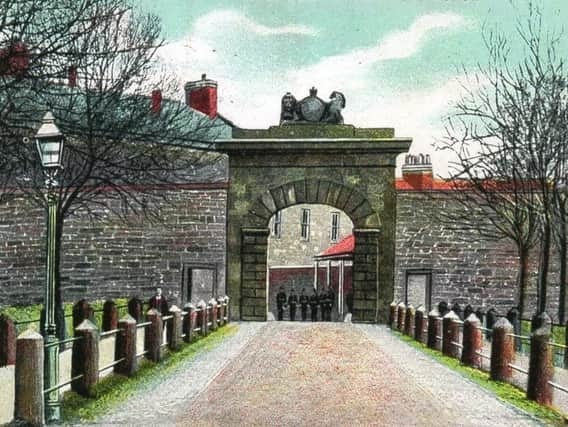War-time Preston wife threw acid over soldier at army barracks


At the Manchester Winter Assizes of mid-November 1915, before Mr. Justice Low, Gertrude Wilmot, aged 24, appeared in the dock charged with inflicting grievous bodily harm on soldier Thomas Craven. Wilmot who lived in Lockhart Road, Preston, was the wife of a soldier serving with the Royal Engineers who had been on the Western Front.
The court heard that in the last week of October the accused had assaulted the soldier who was a gunner in the Royal Field Artillery based at Fulwood Barracks.
Advertisement
Hide AdAdvertisement
Hide AdThe prosecution was led by Mr Stanley who stated that for about 10 weeks before the incident the accused and Thomas Craven had been on friendly terms, but when he found out she was a married woman he declined to have anything more to do with her.
Nonetheless, she had bothered him to resume the friendship, and when he still declined she went to the barracks. Whilst they were in conversation on the parade ground she took a small bottle containing vitriol from her muff and threw it at him, his face and hands being severely injured. Craven was at once rushed to the Preston Infirmary and the accused remained at the barracks where she was arrested.
Mr. Shawcross, spoke on behalf of the prisoner, saying she pleaded guilty but the circumstances that led to the attack deserved the sympathy of the court. He related that the prisoner, who had a four year old daughter, had been a good wife and affectionate mother prior to being introduced to Craven.
She claimed that although she had told Craven she was wed, he persisted in his attentions, and on the return of her husband from the front he was told of his wife’s conduct. Consequently, he had declined to have anything more to do with his wife.
Advertisement
Hide AdAdvertisement
Hide AdAccording to her, Craven had promised to stand by her and she took lodgings in Lockhart Road where he visited her a number of occasions before telling her he had met another woman.
During the days that followed she had made herself seriously ill by taking some drugs and two doctors having to attend to her. She had been so overwrought by all the troubles that she had bought the vitriol, diluting it with water.
Mr. Shawcross then added that the prisoner’s husband had since expressed his sympathy for his wife and had offered to take her back. In reply to a question from the judge, Mr. Stanley said that the injured soldier was still in hospital, but was recovering.
Addressing the accused His Lordship stated that the offence was a serious and spiteful one, whether induced by jealousy or not, it could not go unpunished. She was then sentenced to nine months imprisonment and greatly distressed, she swooned in the dock and had to be assisted as she was removed from court.